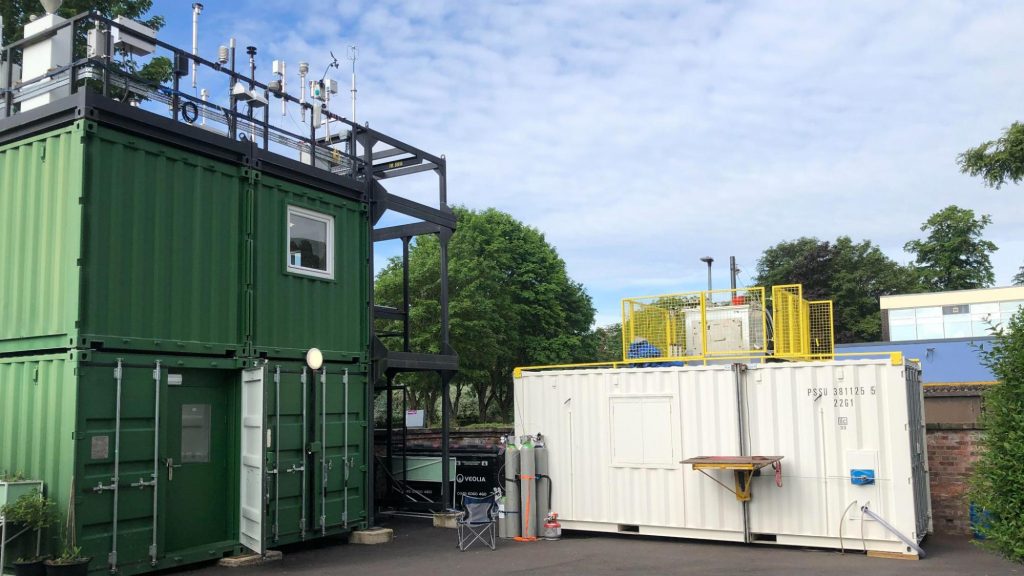
Researchers ramp up measurements for six-week clean air campaign
Researchers have kick-started an intensive six-week measurement programme at air quality supersites across the UK, aiming to provide new insight into the formation of air pollution, and its impact on people.
The collaborative approach will bring together leading experts and observation equipment at urban measurement sites in Manchester, Birmingham and London, supported by the National Centre for Atmospheric Science.
The project, called the Integrated Research Observation System for Clean Air (OSCA), aims to build a clear picture of what pollutants are being released in urban areas, and how chemicals react in the atmosphere to form secondary pollutants, such as particulate matter and ozone.
In Manchester, the project’s epicenter, over £2 million of equipment will be deployed over June and July.
The intense monitoring schedule enables researchers to measure a much wider range of chemicals than during routine observations.
Scientists will be able to pinpoint new and emerging pollution trends, and quantify urban pollution sources such as tyre and brake emissions, wood-burning, and cooking emissions.
“We’re seeing a snapshot of the atmosphere at an enhanced level of detail” says Dr James Allan, National Centre for Science and University of Manchester.
“By carrying out many specialist measurements at the same time and in the same place, we’re maximising the information we get.”
Changing emissions
As our transport systems, energy resources, and chemical products continue to develop, and the demand for them changes, monitoring air quality proves to be an on-going challenge for national and regional policy-makers. Significant changes in the types and sources of pollutants are likely in the years ahead, and, as we’ve seen throughout Covid-19, are already taking place.
The detailed evidence acquired by OSCA will support regional authorities to develop made-to-measure air pollution controls, which respond to changing sources of pollution. Urban air quality research will also feed into wider efforts to manage air pollution across the country, which are expected to be announced later this year as part of the government’s Environment Bill.
Launched in the build up to Clean Air Day, the six-week long study is the largest measurement campaign at the UK’s urban air quality supersites to date.
“Poor air quality is the largest environmental health risk in the UK. We know pollution emissions are changing, but it’s uncertain how this will affect the air we breathe. We are testing whether all sources of pollution are fully accounted for, and aiming to provide evidence that allows pollution controls to have the biggest possible benefits for our health and our environment.”
Professor James Lee, National Centre for Atmospheric Science and University of York
The Integrated Research Observation System for Clean Air (OSCA) is part of the UKRI Clean Air Strategic Priority Fund, and is supported by the Department for Environment, Food and Rural Affairs (Defra).
The team includes a network of researchers across the University of Manchester, University of York, University of Birmingham, University of Cambridge, Imperial College London, and King’s College London, as well as the National Centre for Atmospheric Science and the UK Centre for Ecology & Hydrology.
